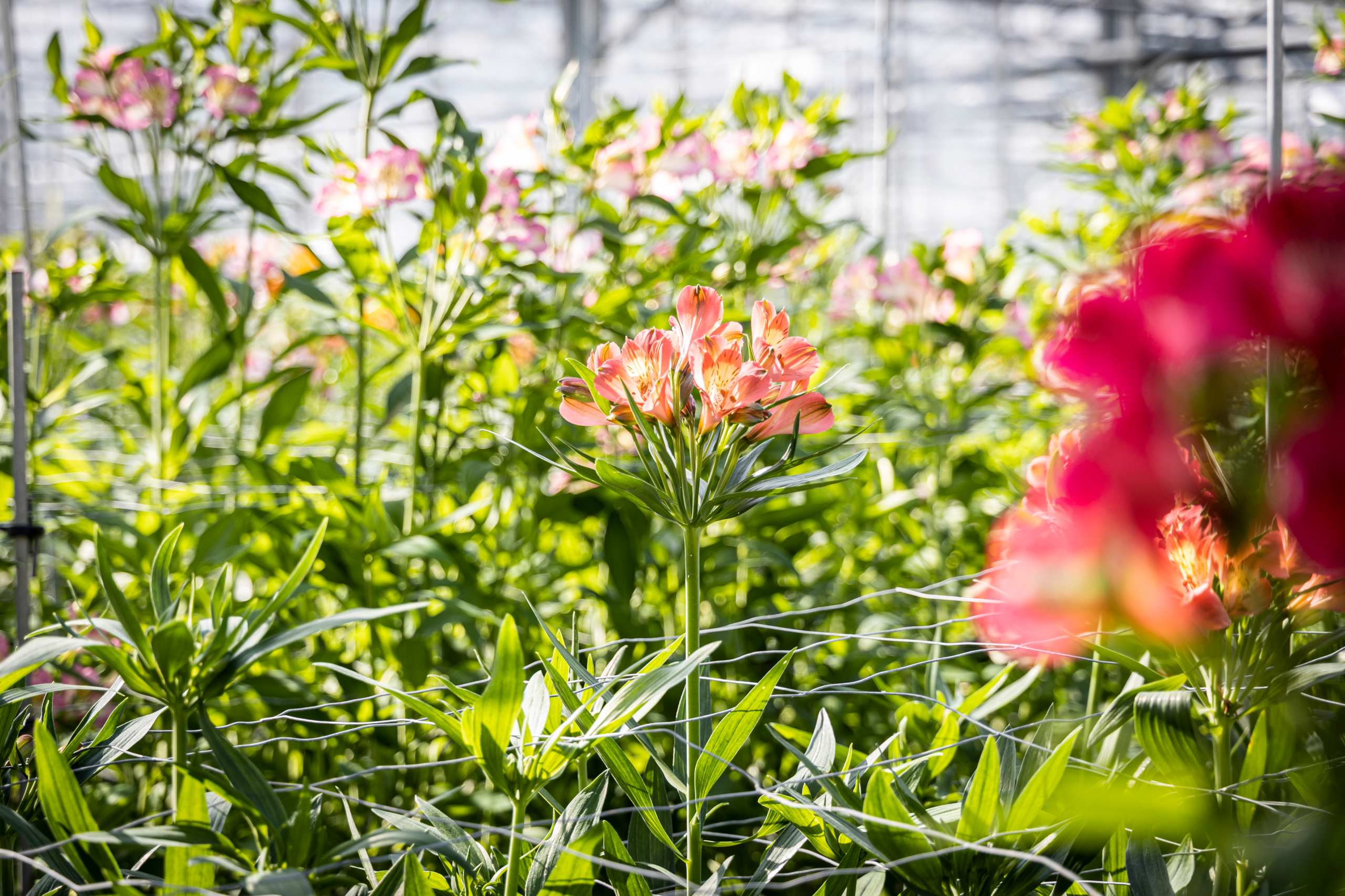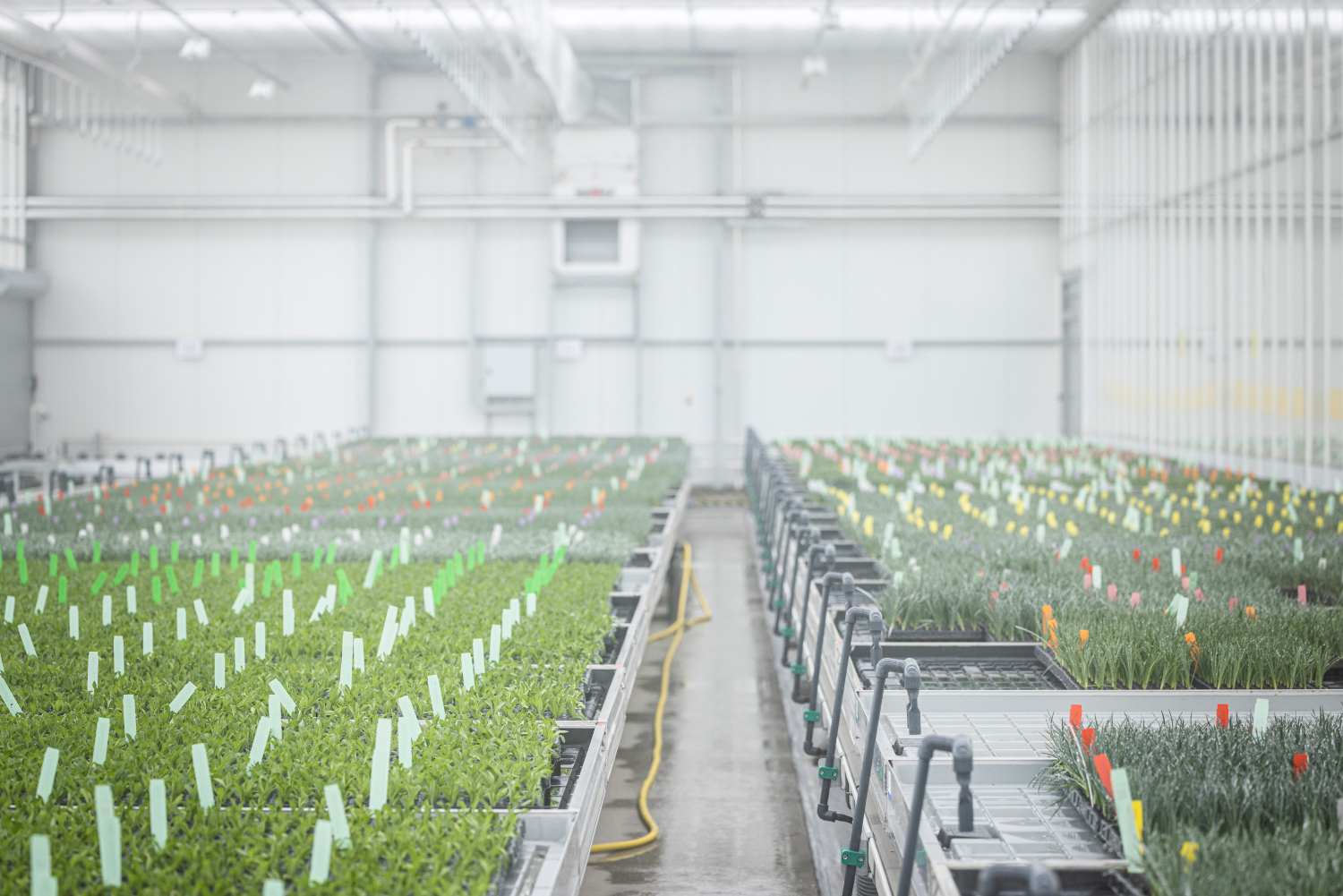
Sustainability in breeding and production at HilverdaFlorist
Sustainability in floriculture is no longer just a concept, but an integral part of business operations. The team of HilverdaFlorist has dedicated itself to integrating sustainability principles into its business operations. The company already has several principles they are working on to be as future-proof as possible. In this article, we highlight some of these processes.
Sustainability in breeding
A crucial aspect of sustainability at HilverdaFlorist is the integration of sustainable principles into breeding. A major importance of this is reducing the use of pesticides within the various product groups. The focus is on developing genetic resistances and tolerances, thereby reducing dependence on these substances.
Resilience is a key concept in the breeding process, meaning improved plant resistance to diseases, pests and abiotic stressors. HilverdaFlorist maintains partnerships with Wageningen University and other external laboratories to research genetic resistances. This demonstrates commitment to knowledge sharing and joint efforts toward sustainability goals.
The influence of consumers and sustainability in breeding choices
The market observes that consumers attach increasing importance to sustainably grown flowers and plants. This influences HilverdaFlorist’s breeding choices, which include, as mentioned, developing more resistant varieties to reduce the need for pesticides. Plant resilience contributes to the satisfaction of consumers, who can enjoy healthier flowers and plants in their homes and gardens for a longer period of time.
HilverdaFlorist strives for sustainability by carefully considering the use of materials, saving energie and planning growing seasons. This includes looking at optimizing (suitable) genetics for outdoor growing to save energy, which is a more environmentally friendly approach.
Sustainability in production
In production, circularity is central, with a strong focus on reuse and waste reduction. Waste streams are carefully separated, and CO2 is captured and reused in the greenhouses. HilverdaFlorist is also exploring the possibility of a solar panel park, which would be a further step toward sustainable energy supply.
HilverdaFlorist not only supplies energy to the grid, but also utilizes heat and electricity internally, ensuring that no valuable energy is lost. The company is actively increasing electrification and implementing a heat pump to generate heat in alternative ways to save gas.

Biological control
Sustainability in production at HilverdaFlorist goes beyond energy efficiency. Chemical pesticided are phased out and replaced by biological methods. This approach minimizes the impact on plants and contributes to a healthy ecosystem.
HilverdaFlorist also aims to promote biodiversity through collaboration with fellow businesses. The goal is to develop specific vegetation favorable to insects, creating a larger ecosystem.
Peat-free substrates and future sustainable initiatives
The company is committed to creating peat-free substrates because of the limited availability of raw materials and legislation restricting the use of peat in substrates. HilverdaFlorist is dedicating itself to this development in order to best serve its customers in the future.
HilverdaFlorist joins FSI 2025
HilverdaFlorist is proud to have recently become part of the Floriculture Sustainability Initiative (FSI), and in addition to current developments within the company, looks forward to further steps taken in the future within the shared goals of the FSI network. With “Partnerships” as one of its core values, HilverdaFlorist believes in standing strong together by sharing knowledge so as to achieve more than as a single player. This so that together we can make a valuable change within the society.
HilverdaFlorist shows determination in incorporating sustainability principles into both breeding and production. These efforts reflect not only an environmentally friendly approach, but also a commitment to creating healthier plants and promoting sustainable practices in the floriculture industry.

 Dwarsweg 15, De Kwakel
Dwarsweg 15, De Kwakel 
